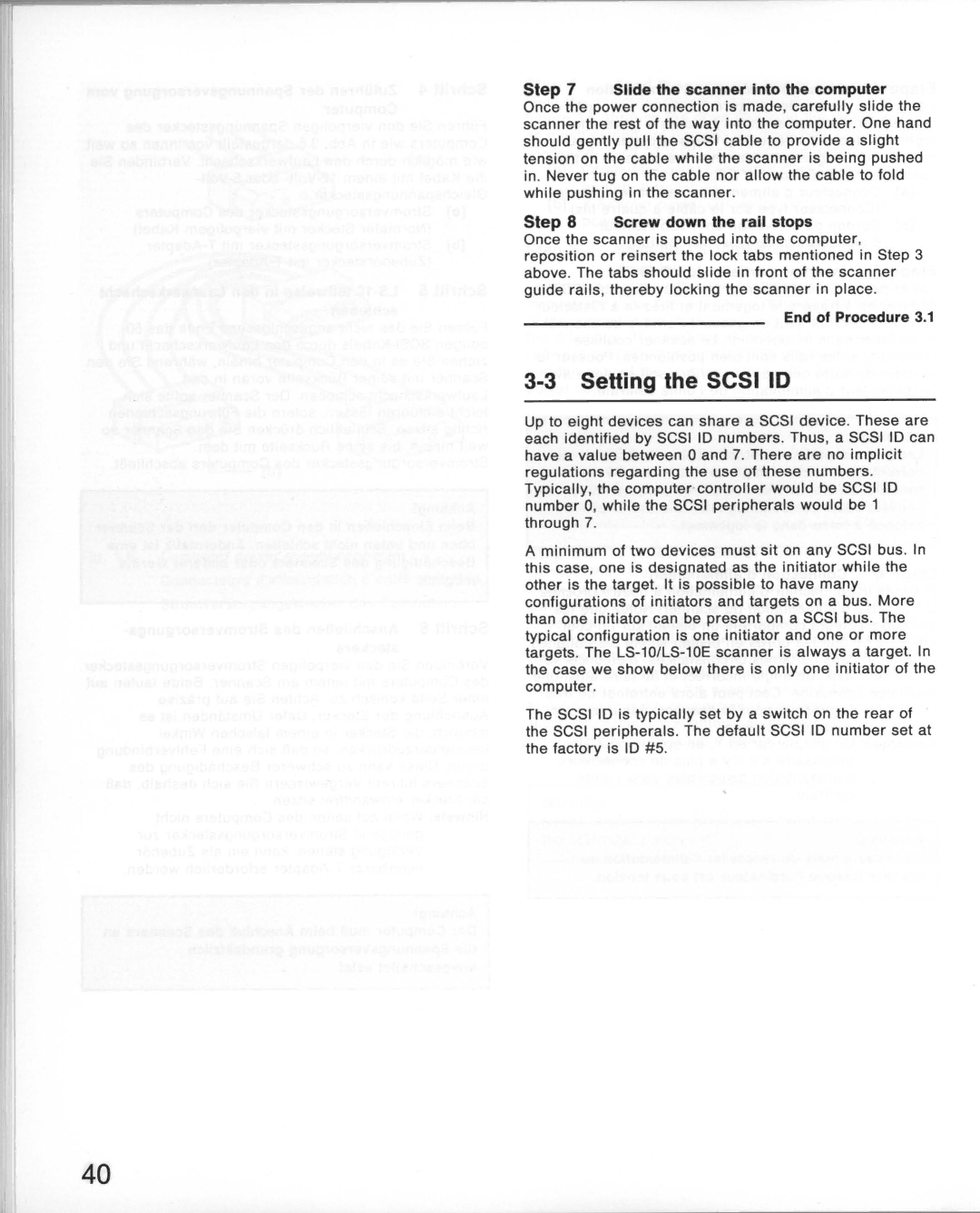
Step 7 Slide the scanner Into the computer
Once the power connection is made, carefully slide the scanner the rest of the way into the computer. One hand should gently pull the SCSI cable to provide a slight tension on the cable while the scanner is being pushed in . Never tug on the cable nor allow the cable to fold while pushing in the scanner.
Step 8 Screw down the rail stops
Once the scanner is pushed into the computer, reposition or reinsert the lock tabs mentioned in Step 3 above. The tabs should slide in front of the scanner guide rails, thereby locking the scanner in place.
End of Procedure 3.1
3-3 Setting the SCSI 10
Up to eight devices can share a SCSI device. These are each identified by SCSI 10 numbers. Thus, a SCSI 10 can have a value between 0 and 7. There are no implicit regulations regarding the use of these numbers. Typically, the computer·controller would be SCSI 10 number 0, while the SCSI peripherals would be 1 through 7.
A minimum of two devices must sit on any SCSI bus. In this case, one is designated as the initiator while the other is the target. It is possible to have many configurations of initiators and targets on a bus . More than one initiator can be present on a SCSI bus. The typical configuration is one initiator and one or more targets. The
The SCSI 10 is typically set by a switch on the rear of the SCSI peripherals. The default SCSI 10 number set at the factory is 10 #5.
40
